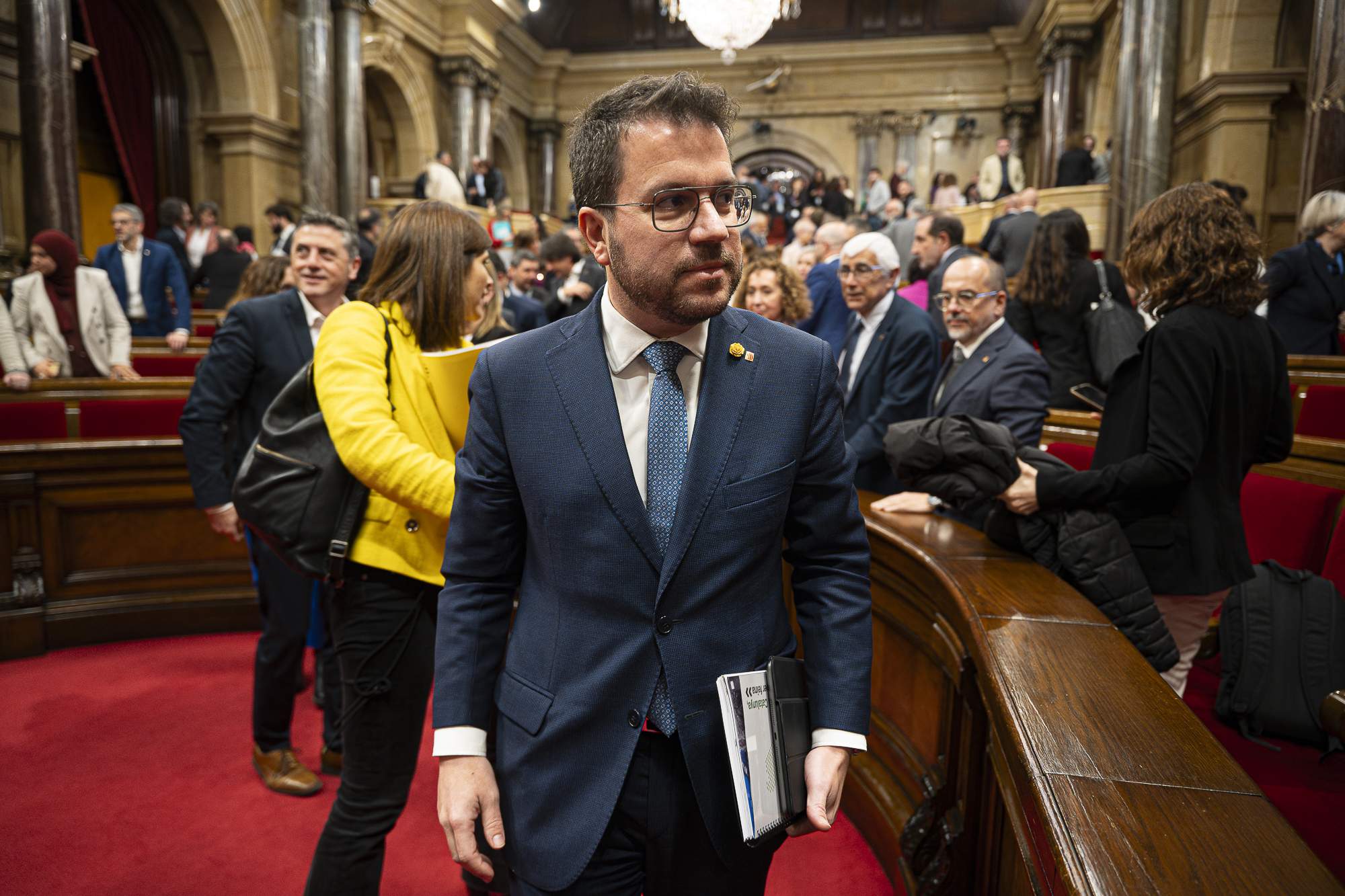Elections in Catalonia on May 12th. The setback that the minority Catalan government has received this Wednesday as its draft budget was not even admitted for hearing by Parliament has been the last straw, prompting the early election that the president, Pere Aragonès, had put aside several times since October 2022 when his government was left with the support of only the 33 deputies of his own party, the Catalan Republican Left (ERC) in the 135-seat chamber. After Parliament threw out the government's proposed accounts, Aragonès called an extraordinary meeting of the Catalan cabinet to inform his ministers that the legislature has reached its end. Immediately afterwards, he made a media appearance without questions in which he announced the date of the elections.
The "red lines" set down by other parties in the house, said Aragonès, along with "the blockade between one party and another" are responsible for "the budget with the most resources being rejected", and thus the president of the ERC government blamed the opposition groups for the failure of the accounts bill to get a hearing. He argued that "in the face of the irresponsibility of the political groups that today have rejected the budgets, the country needs responsibility".
The failure of the budget to enter parliament has been the precipitant, but it has not been the only element weighing on the decision. One major issue on the table has been Catalonia's persistent drought, which will force the government to tighten restrictions; the difficulties that former ally Together for Catalona (Junts) finds itself in, without having any designated candidate; the difficulties, also, that the Catalan Socialist (PSC) candidate, Salvador Illa, has to face, amidst the Spanish Socialist's crisis over the Koldo case just at the moment when the polls seemed to be smiling at them. All of these aspects would have been factors in the snap election call, with the second half of the year already occupied by an electoral date, the European elections on June 9th.
The campaign begins
In the very speech which Aragonès used to announce the snap election, he has begun his campaign. In the six minutes of his address, he first attributed to the opposition the responsibility for not being able to move the budget forward, and then went on to assert that Catalonia has two "country projects": a conformist vision anchored in the past that feels comfortable with "dependency on the government of the Spanish state" - referring to the Catalan Socialists, and another, which he asserted that he backs, "fully republican, which sees the future with ambition and the unequivocal horizon of freely deciding the future as a people".
"Since the beginning of my presidency, my commitment and my actions have been aimed at finding solutions wherever there were problems", Aragonès said, assuring that today there are more doctors, more health workers, more police than ever, after his government had taken charge in May 2021 - with Junts in pro-independence coalition for the first 15 months after elections that February. Aragonès admitted that his goal was to see the legislature through to its four-year conclusion and that Catalonia deserved an entire legislature, but he concluded that now is the time to "look forward".

